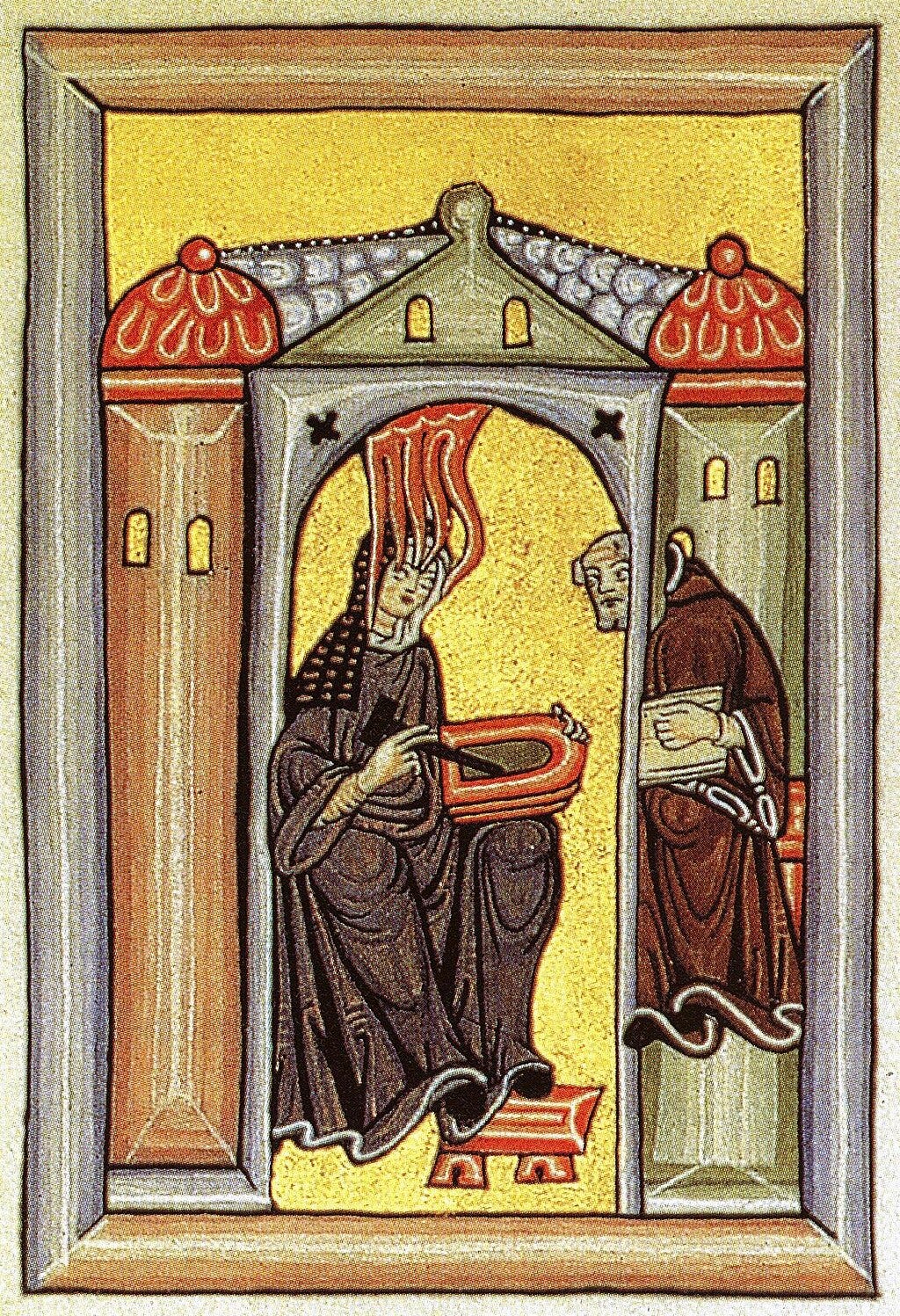Welcome to ÆTERNUM…
… a Minnesota-grown, now nomadic experimental music project organized by Fr. Brian John Zuelke, O.P., a Dominican priest friar of the Province of St. Albert the Great. Our first release is “Domine refugium,” which you can watch at our website and listen to at our Bandcamp page. (Donations welcome!) Our project aims to combine sacred and secular music forms to create powerful genre-blending mash-ups for your edification.
Future newsletters will explore the various facets of this music project and its releases, as well as providing (as time allows) updates about what we’re working on. So if you want to follow our progress…
What will we offer here in the future?
Details about the origins of the project
The philosophy and theology behind the project
Explorations of our first release, “Domine refugium”
Fun explorations of music theory, how the various tools and equipment worked for us, and how demos were developed over time
Interviews with project collaborators, video clips from the development and recording process, and eventually a “Making Of” video
And so on.
But let’s start here: Why Latin?
There are many music groups who have attempted to combine Christian faith with popular music forms. Here’s one…
Hmm. Here’s another…
That’s better.
Here’s the thing: Writing lyrics is really putting yourself out there, and if you’re not good at it you could end up inviting mockery. And if you’re coming from a place of faith in the God of the Universe, inviting mockery seems risky…

Wouldn’t it be great if you had solid, ready-made lyrics, so that you didn’t have to risk inviting mockery after spending a bunch of time pouring your heart into a song? Gosh, where could we look?
Well, how about The Psalms of the Hebrew Scriptures? A compilation of song texts extending back (in final form) about 2500 years (give or take), it’s like a time-tested and true resource for expressing faith in God. This book of song texts was taken-up within the Christian tradition as the starter point for liturgical (worship) music, so that even today you will hear the Psalms embedded in everything from the celebration of the Roman Catholic Mass to the Liturgy of the Hours. Why try to improve upon perfection?
The Latin Vulgate texts of the Psalms have been especially important for the development of the Gregorian chant tradition, and the Medieval and Renaissance polyphonic traditions that built upon it. It’s a complicated topic that might be worth taking-up later with the help of those who know better, but take it for granted that these forms of song developed symbiotically upon the Latin language. You can do things musically with Latin texts that are not directly convertible to use in other languages, and something is always lost in translation. In other words: If you like these forms of vocal music, you really should be sticking to the original language.
Now, in my head (more on that later) the vocal style I want is Medieval polyphony... combined with metal. I’ve long been a fanboy of the works of St. Hildegard von Bingen (not to be confused with Hildegard von Blingin’) after hearing her works performed by Anonymous 4 prior to entering seminary formation. (In fact, I decided to select St. Hildegard as the official patroness of this project. Ora pro nobis.)

So if Medieval polyphony à la Hildegard of Bingen is the sound I want, Latin is be the language of choice. QED.
Well, not quite. There were many other reasons Latin was beneficial, and (paradoxically) they both have to do with accessibility.
First, I wanted the music we create to be accessible to all sorts of people: people of Christian faith, people of any other faith, people of no faith. When I went to one of the farewell-tour performances of Anonymous 4 in 2016, I was struck by the variety of people (and variety of tattoos) packed into (wait for it) a Roman Catholic Basilica. I had volunteered to be an usher so I could get in for free; so had an very burly man with a beard wearing a dress. Love of Medieval music is a “big tent,” folks. I suspect that, unlike lyrics such as “Jesus is a friend of mine,” our religion-allergic age doesn’t immediately slam down the gates when hearing a song in Latin… because it doesn’t know what’s being said! Thus, it can safely listen to the beauty of the music in peace (maybe).
Which brings me to the second point. Latin is a “dead” language… which means it’s capable of living forever, giving it temporal accessibility; and because it’s fixed in stone (mostly) and belongs to no one, it is capable of belonging to everyone, giving it spatial accessibility. Thus, for a truly global reach, you can’t beat an ancient language, especially one upon which many other languages are based or influenced by.
But I can hear an objection: “Shouldn’t the point be to understand what’s being said?” I don’t disagree: I prefer to know what I’m listening to, most of the time. However, think of how difficult it is to understand most popular music lyrics. Do people care? Often we listen to what’s being sung like it’s another instrument being played, not because of the content. Opera, too, strikes me as having appeal without the audience directly grasping the content of what’s sung: often it is looking at translations in booklets.
Finally, there are multiple examples of (mostly underground) vocalists literally making-up their own languages, namely Cocteau Twins and Dead Can Dance (both of the legendary record label 4AD, curiously). If these vocalists can glossolate to the delight of everyone, though their lyrics have no intelligible content, then why can’t we do the same with intelligible content?
Hair was better in the 80s.
So there. These are the sorts of explorations we’ll be doing in this Substack, so if you want to read more in the future…
Peace be with you.
Fr. Brian





